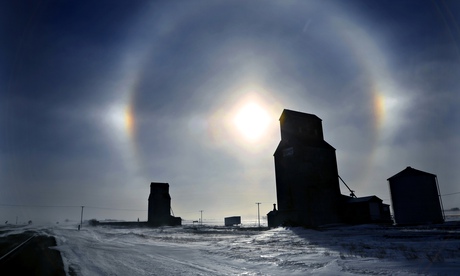
Beaches, like books, offer a dislocation from reality, and when taken together the effect is multiplied many times. I love getting lost in a narrative then being jarred out of it by a noisy fellow holidaymaker and looking up, blinking, to remember I'm lying awkwardly on a towel on some sun-kissed shore, miles from home.
Like the terra firma of a beach bordering the seemingly endless sea spooling out and away from the land, Neil Gaiman's American Gods offers that same sense of being anchored to reality but at the same time being merely a bulwark against something massive and frightening and ultimately unknowable.
It seems a little odd now, given his ubiquity, but when American Gods was published in 2001 Gaiman wasn't a household name, unless your household happened to be filled with long-boxes of the comic books on which he had built his career. It wasn't his first, but American Gods feels like his first proper novel; previous outings had been Neverwhere, which was essentially a novelisation of his own screenplay for a BBC TV production whose budget never quite matched his imagination, and Stardust, a slight (though satisfying) fairytale originally conceived as an illustrated book with the artist Charles Vess.
My copy of American Gods (the original mass-market paperback; some years later a "director's cut" was released with a further 12,000 words) has pages stained with sun-cream and crinkled by damp and heat. When it was released the publishers offered to refund the price of the book to anyone who didn't find it "as good as Stephen King". It seems an odd, skittish thing to do from a marketing team who perhaps wasn't quite sure in which box this imagination needed to be forced.
The only thing American Gods shares with a King blockbuster is perhaps its heft, clocking in at a meaty 600-plus pages and satisfyingly heavy, enough to weigh down the corner of a beach mat should an unexpected chill wind rise suddenly. That and perhaps the fact that American Gods attempts to pierce the dark heart of America. But Gaiman isn't trying to expose the American Nightmare, like King, he's rather unspooling the many disparate threads that created America to find the wonder in the weave.
American Gods begins with Shadow, a big man in his 30s who keeps himself to himself as he serves out the final days of a prison sentence for armed robbery. Two days before his release date he is let out early; his wife Laura has died in a road accident. Aimless and bereft, Shadow begins the lonely journey to an empty home when he is offered a job as bodyguard to the mysterious Mr Wednesday.
Wednesday, it transpires, is not the rogueish old man that he seems, or at least, not just that. He's a god, albeit one without much in the way of worshippers. But he's a god we know, though it takes Shadow an agonisingly long time to cotton on to who he is (the clue, as with everything in this book, is in the name, Wednesday, and the god from the Norse pantheon it is named for).
And Wednesday isn't the only old god scratching a living in America. In fact, there are loads of them. This is the central conceit of Gaiman's book, and a rather clever one it is. America is a nation made up of settlement by a vast number of the world's peoples. What if each fresh round of colonisation or settlement brought with it its own gods from the old country, who took root in this fertile soil of the New World, creating a melange of home-from-home pantheons?
But Wednesday and his god buddies have a problem. No one really believes in them any more, and without belief they are practically nothing. Worse than that, there are new gods in America, and they have plenty of worshippers – the gods of TV and the internet, of shopping malls and credit cards, technological gods whose eyes glow with the green of vintage computer monitors. The new gods want the old guard out of the way. A war – or as we are more often told in the book, a storm – is coming.
American Gods is a chilly book for a beach read, I'll grant you. It's snowbound and icy, the narrative straddling Christmas, and the rumble of thunder is never far away. But it's big and epic and when you do drag yourself out of its depths you never feel as glad to see the sun.
There's something raw about American Gods, too. It's a polished piece of writing, no doubt about that, but it has that simultaneous urgency and sprawl of a writer finding their feet. Gaiman's latest novel, The Ocean at the End of the Lane, is a perfectly-formed parcel of tight writing and economic plotting; American Gods spills over the edges of the page as Gaiman gives himself an almost runaway-truck freedom to pile anything and everything that tickles or interests him into the novel.
Shadow travels across America, learning about the gods and the war they are fighting, and it is at the same time an America we recognise – even if we have never been there – and an America that is secret and hidden. There's horror, perhaps prompting that marketing conference which decided to ally him with King, but there's also a lot of hope, a lot of fun and a sense of wonder which makes this a joyful, satisfying and enriching experience.

